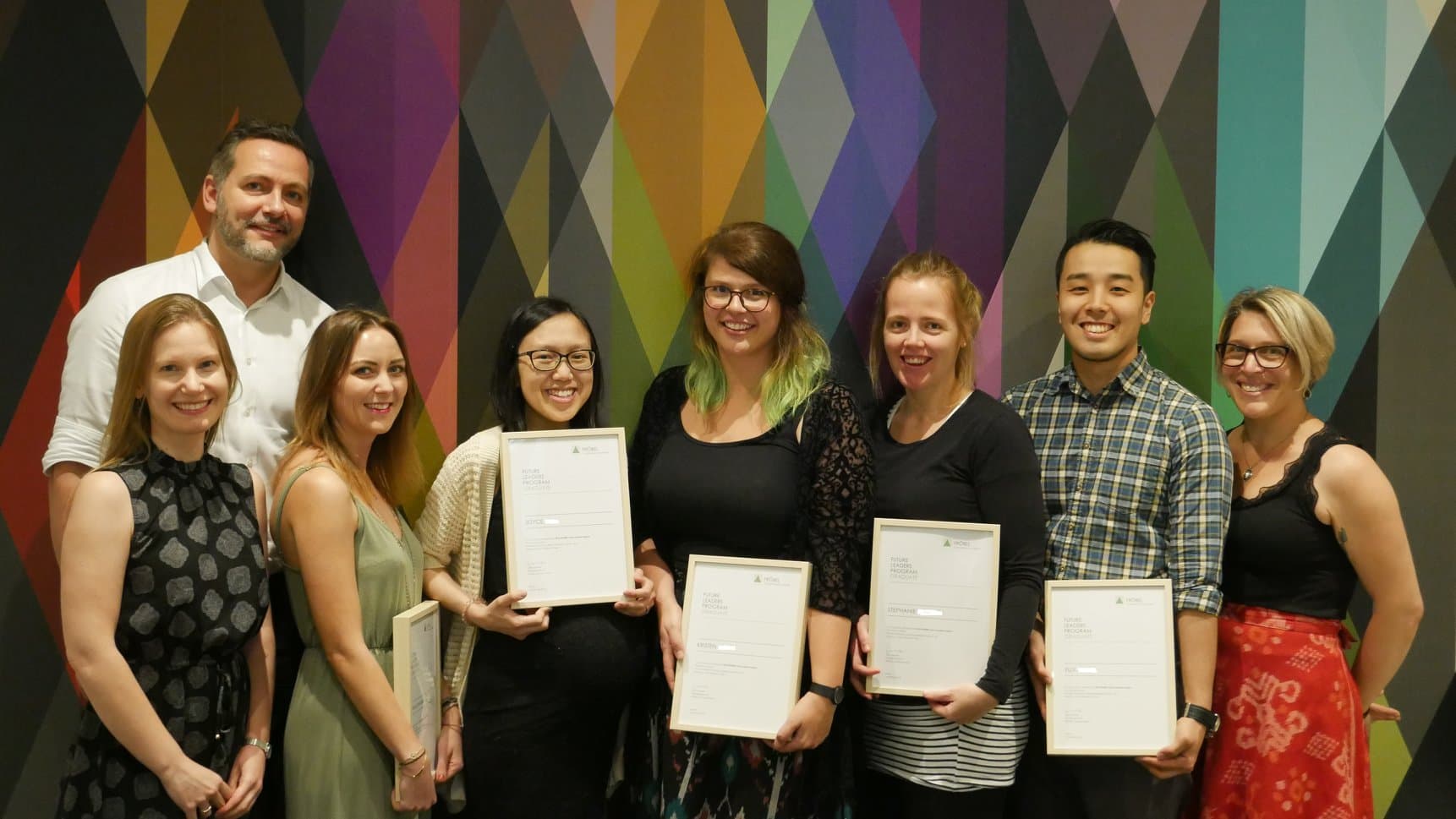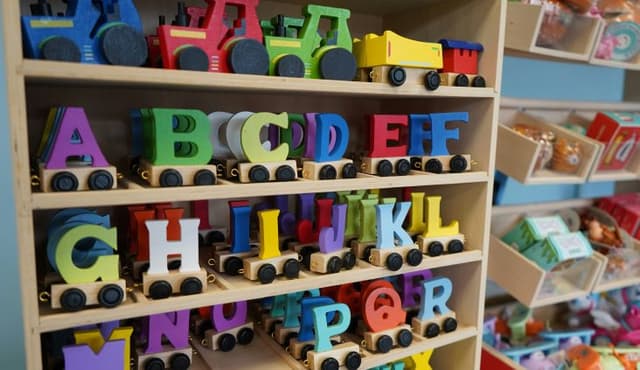General News
Professional development
FROEBEL Australia action research to drive organisational change

Freya Lucas
Jul 10, 2019
Save
Play and activity were essential tenets of the kindergarten created in 1837 by Friedrich Fröbel. In creating the kindergarten, Fröbel had an intentional goal - teaching children to learn, observe, reason, express and create through play.
The focus was not about instructional learning, teaching a series of isolated facts, but rather an experiential holistic experience for the creation of a sensitive, inquisitive child with an uninhibited curiosity and genuine respect for nature, family and society.Expanding on these roots, and remaining true to the underpinning philosophy, FROEBEL Australia set out to create a space where their leaders could do the same - a place where education and care professionals could safely play with the theoretical ideas they were learning.
A time for practice and reflection, and a sense of connection, of building a bridge between existing skills and knowledge, theoretical perspectives, and the fundamentals of practice. An opportunity to support teachers and educators to acquire leadership skills. A purposefully created community of learners that supports outcomes for children's learning and development.
The result? The FROEBEL Future Leaders Program (FFLP).
The key messages of FFLP were everyday leadership with a commitment to fostering inquiry, in an environment where it was safe to play with theory and to experiment with applications.
The drive here, FROEBEL Australia Quality Management and Compliance Coordinator, Leora Coleman said, is to support the professional development of leaders who drive and lead the core value of reimagining early education.
“We are strongly committed to continuously reimagine and further early education in the light of contemporary research and practice. We believe that excellence in the design of learning environments paves the way for excellence in early learning programs. We challenge the status quo and aim to be at the forefront of progress that will benefit young children and families. We make time for reflection to cultivate strategic and creative thoughts, and always dream big.”In commencing this leadership journey, FROEBELAustralia utilised the Early Childhood Australia Leadership Program as a theoretical underpinning, extending on the modules available with a series of face to face learning sessions in the Sydney based head office, followed by the opportunity for leaders to participate in an action research project.
The FFLP commenced in 2017, with the first cohort recently completing change projects within their service, explicitly linked with their individual service’s Quality Improvement Plan (QIP).
A total of five participants completed the program, with three projects having the most impact on the everyday practices for the educators and the teams in which they work. Each of these projects have had an organisation wide influence also.
Embedding Environmental awareness into the curriculum
FROEBEL Fitzroy North had a QIP goal of moving their environmental awareness beyond recycling.
The service has strong parent and educator engagement with their community garden and a committed team who support environmental awareness, but Kristen Jones, Educational Leader at the service, wanted to find a way to ensure that this awareness flows into the curriculum and becomes embedded within the teaching and learning for the children’s program.
The environmental action research project began by reviewing the existing policy, considering what the organisational philosophy was, and exploring ideas of intentionality in regards to teaching and learning strategies.
The results of the project were complex and in depth investigations with children on their understanding of sustainable practices, awareness of the impacts of plastic in our environment and waterways, use of water and water saving opportunities.
As a result of the talking and thinking undertaken during the project, Fitzroy North went on to apply for a local council grant to have a water tank installed. Regular excursions to CERES Environmental Park were another outcome from the consultations.
At a whole of organisation level, Kristen’s work sparked an organisational review of our Environmental Awareness Policy which was influenced by the work Kristen completed. The review was sent out to all families and educators across FROEBEL services, generating a lot of discussion in other services, and prompting them to review and reflect on their individual locations and what they can continue, improve or change to ensure more environmental awareness is embedded in programs as well as holistically throughout the organisation, Ms Coleman said.
Embedding Bilingual education into practice
Ms Coleman explained the importance of Bilingual education, which is a core component of FROEBEL Early Learning Centres, through the concept of immersive language learning.
“Immersive language learning takes place when the second language is embedded holistically within the curriculum, not through set language learning times in the day.” she explained.
Stephanie Bleicker, the Educational Leader at FROEBEL St Leonards, embarked on a project on how to improve the bilingual approach to deliver increased German language opportunities.
A large part of increasing the opportunities was an exploration on how to lead the educators and children trialing new teaching and learning strategies, and what impact a presence, or absence, of a willingness to try, change or modify and reflect on practices had on successful immersion.
The success of trialing some of these new approaches in the toddler space at St Leonards led to the roll out and influence of changes in all rooms.
In completing the project, Stephanie also noted that the development of resources and the active participation of all educators was required to deeply engage in reflecting, modifying and changing the immersion program, coupled with a willingness to try and transform.
From the research, and the success of the approaches, an organisational “Educators Practice” guide was developed, containing explanations of what immersive language learning is, and practical examples of embedding practice into curriculum.
This resource was developed collaboratively with Head Office and is due to be released to all FROEBEL services for Directors to use as part of all educator Inductions, and to prompt ongoing reflection when delivering Bilingual concepts in all services.
Aesthetics of environments
Ms Coleman also shared that FROEBEL Australia had been “extremely fortunate” to be able to offer one FFLP participant a study and research trip to Bangkok, Thailand, to visit Jittamett, an incredible early learning service where they could observe and discuss their concepts and philosophy of how to implement a consistent, aesthetically pleasing environment.
The Jittamett trip came about because FROEBEL St Leonards had been working on a goal of creating environments that aligned with the philosophy, vision and values of FROEBEL.
The St Leonards centre is situated in a contemporary 4 level building on the Pacific Highway, and has a more industrial look and feel in the embedded architecture. As such, educators were struggling to find a way to embed learning experiences that aligned with their building, while also meeting the FROEBEL philosophy and aesthetic ideals.
One of the educators, Yuji Ono, undertook an action research project which ‘unpacked’ his experience of working at St Leonards, the service philosophy and what aesthetics means, and developed a set of graphics, questions and examples to support the team in understanding how to create these spaces through critical reflection, following his reflection and subsequent trip to Jittamett.
“Achieving ‘buy in’ was challenging, as not everyone was quick to agree with the idea that Yuji was presenting,” Ms Coleman said. This road block led to further professional dialogue, and increased the team's engagement in critical reflection around aesthetics. The project continues to unfold throughout the service, as the educators continue to reflect and change environments with the underpinning framework that was developed out of this project.
Head office supported the changes, and collaboratively developed an Environments Identity Framework that can be used in all services to support critical reflection in their environments, based on Yuji’s initial work.
Ms Coleman has been struck throughout the process by the drive of the educators, and the ‘flow’ of their projects, noting that the projects were successful because they were “engaging educators in research topics that were not only areas for improvement on the QIP’s but that were also intrinsically motivating, encouraging educators to explore areas of interest to them, where they were also supported by their Directors and the head office team.” “The impact of each of these projects is ongoing, which I think for me is another stand out point – they didn’t just do a project to be part of a program, like completing an assessment for studies. These educators have embraced the opportunity and are continuing to demonstrate how action research can drive critical reflection and change.” Ms Coleman said.
An unanticipated side effect of the program is that the opportunities extend far beyond the bounds of the FFLP participants.
“It’s not just benefiting those who are engaged in the leadership program” Ms Coleman said.
“We are seeing some educators who are not a part of the leadership program take on their own projects and areas of interest to introduce aspects to their programs, environments and practice.”
Next Steps
With the program now moving through its second cohort of leaders, the organisation is preparing to support the next group in developing their action research questions to embark on new projects. With so many strong leaders having moved through the program already, Ms Coleman anticipates “a continued cycle of mentoring, growing and nurturing individuals to continuously find their leadership identity in order to actively participate in everyday leadership.”The first group of young leaders will contribute to the cycle of leadership by further developing their skills through supported coaching of the new FFLP participants.
Leora Coleman presented Finding your identity as a leader in early childhood-An organisation's approach to developing leadership skills at the 2018 ECA National Conference, as part of the theme ‘Leadership and ethics'.
Don’t miss a thing
Related Articles



















